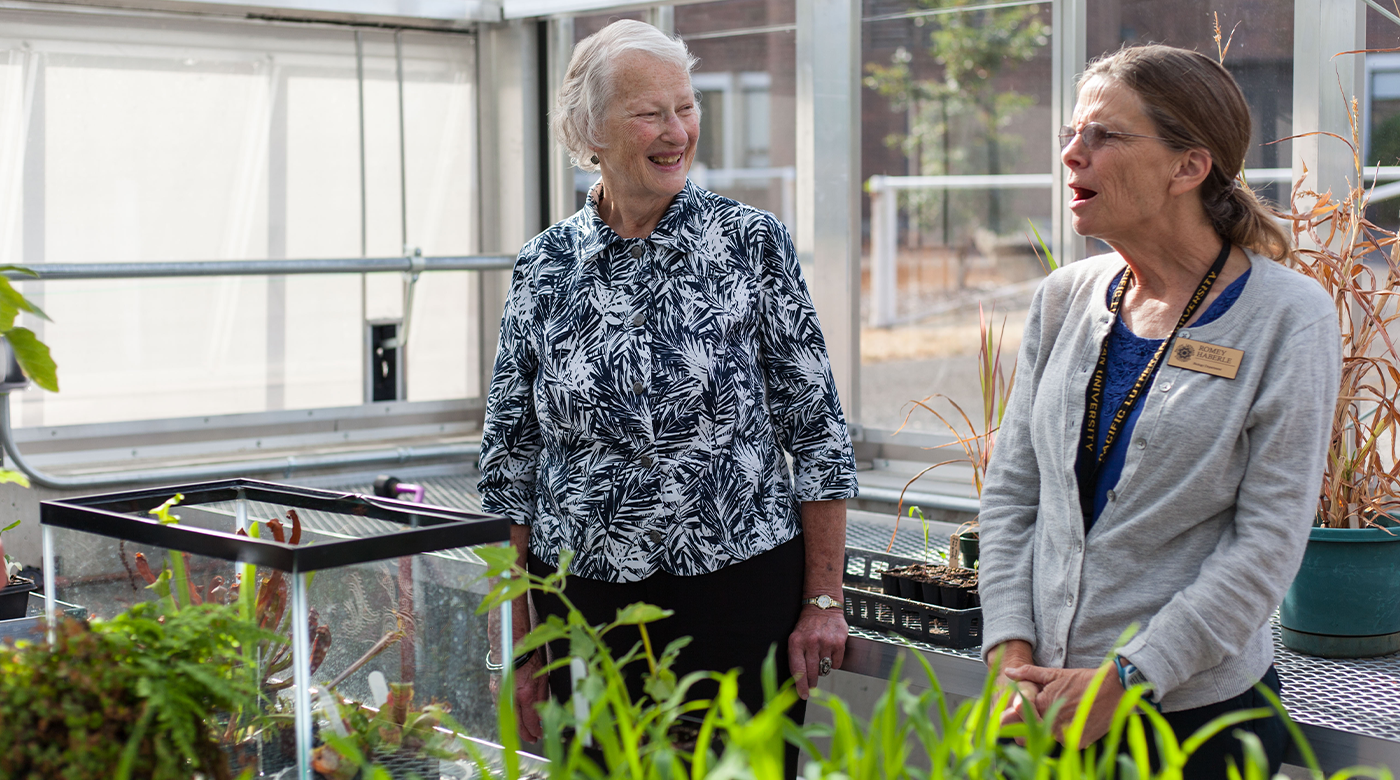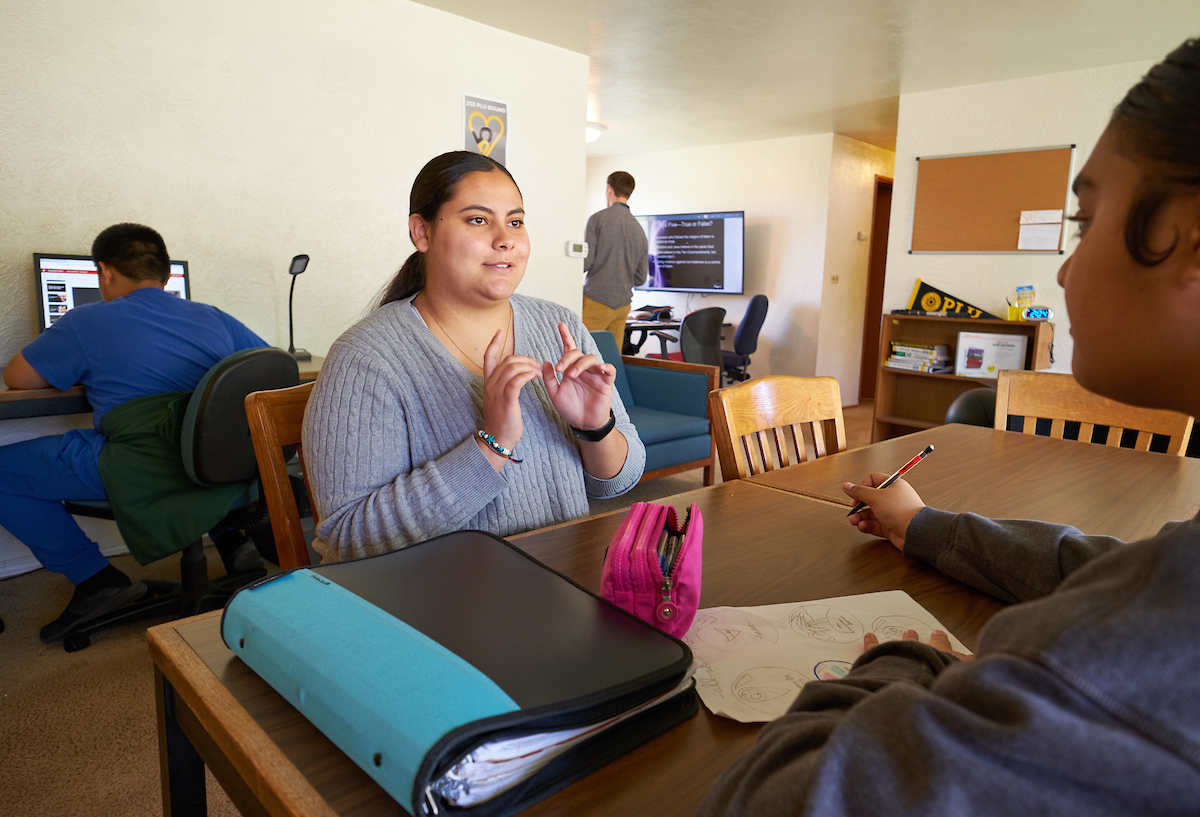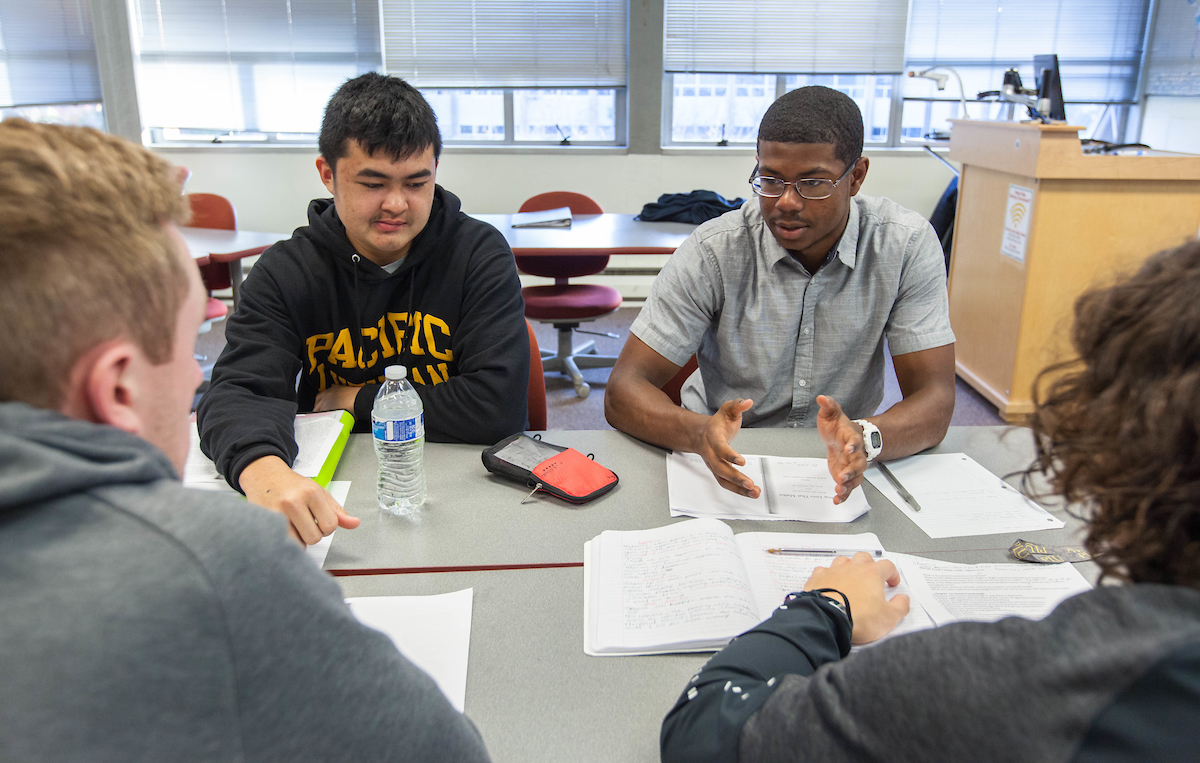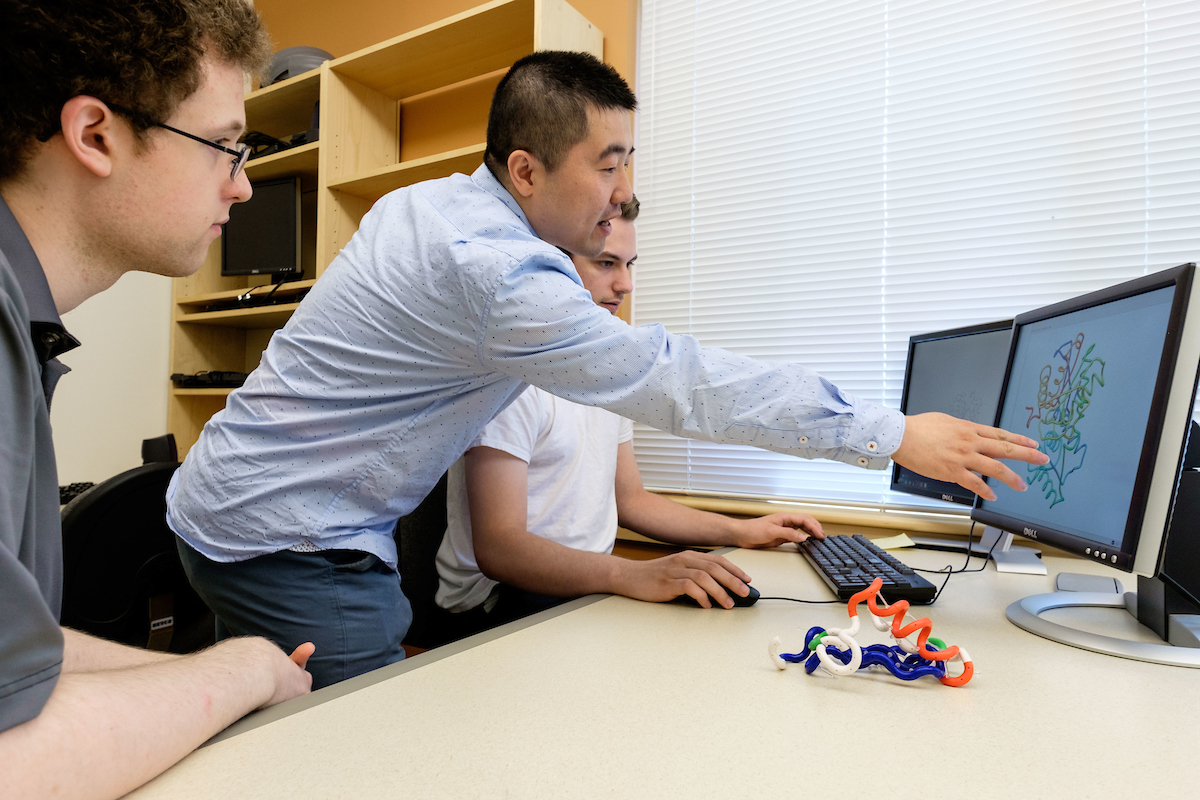PLU announces Carol Sheffels Quigg Award winners

By Veronica Craker
PLU Marketing & Communications
Pacific Lutheran University is pleased to announce the winners of The Carol Sheffels Quigg Award for Excellence and Innovation, established by alumna and regent Carol Quigg, whose endowment funds the awards. The Quigg Awards provide support for faculty, staff, and students who have demonstrated unusually inventive, original, and creative approaches to advance the mission of the university.
Lute Buddies
The first Quigg Award goes to PLU students Nicolas Celebrado and Lindsey Clark and their advisors Dr. Mark Mulder, Dr. Ksenija Simic-Muller, and Jose Curiel Morelos for “Building Bridges, Not Walls: Lute Buddies.”
The program aims to partner PLU students and staff with students from the Franklin-Pierce School District in a mentorship program that goes beyond a student’s academic needs. Instead, program organizers will focus on developing a connection between a PLU student and a student residing in the Parkland area, emphasizing positive relationships’ powerful and restorative nature. For PLU students, it will be an opportunity to understand the surrounding community, as many are not from the area. For Franklin-Pierce students, it will be an opportunity to see beyond their worldview and understand that there are possibilities for them, such as higher education. With support from Quigg funding, the program organizers can support the initial set-up and implementation of Lute Buddies. This includes food during recruitment events, gear, and discretionary funding for mentor use. This work will enable mentors and students to connect on a deeper level.
PLUS 100
Staff members Jes Takla, Joanna Royce-Davis and Jen Smith received the Quigg Award to expand Student Life’s PLUS 100: Transition to PLU program. PLUS 100 is an extended-orientation first-year seminar that has shown to increase graduation rates. Expansion of the program would include continuing to offer the program for all incoming first-year students and providing student teaching assistants for all sections. It would also involve investing in the professional development of instructors and TAs to emphasize the social justice outcomes associated with increased retention rates, particularly for historically marginalized students. By expanding the program, organizers hope to support the PLU community by connecting students to resources to support their transition and success, providing opportunities to forge meaningful relationships with peers and staff, and helping to deepen their sense of belonging in their first semester at PLU.
The Quigg Award funding will expand professional development, hire and train TAs, and support mixed data collection methods, including weekly feedback and regular focus group opportunities to connect with students and instructors to help co-design the future of PLUS 100.
DataFest Competition
The Quigg Award will also go toward the expansion of PLU’s Data Science program through its DataFest Competition. DataFest is an annual competition sponsored by the American Statistical Association and hosted at various universities across the U.S. DataFest is an opportunity for students to work on collaboration, data wrangling, visualization, communication, and applying a host of analytic methods as they ask questions, recognize complexities, and consider the ethical implications of stewarding and learning from data. Past partners who have donated and supported the competition include TicketMaster, Expedia, eHarmony, the microlending organization Kiva, and several organizations related to mental health and social justice.
In 2021, there wasn’t a single university in the Pacific Northwest hosting a DataFest competition. PLU hosted its first DataFest in April of this year. Organizers welcomed 30 students to participate. They encouraged event organizers to put more funding into the event.
With Quigg funding, organizers plan to elevate DataFest 2023 by having local industry and business leaders participate through networking. They already have interest from a lead analyst at Meta, formally Facebook. They will also utilize funding to obtain meaningful prizes, invite students and faculty from other institutions to participate, and invite alums to serve on a special panel. Funds would also go toward an in-person breakfast and trophies.






Social Media